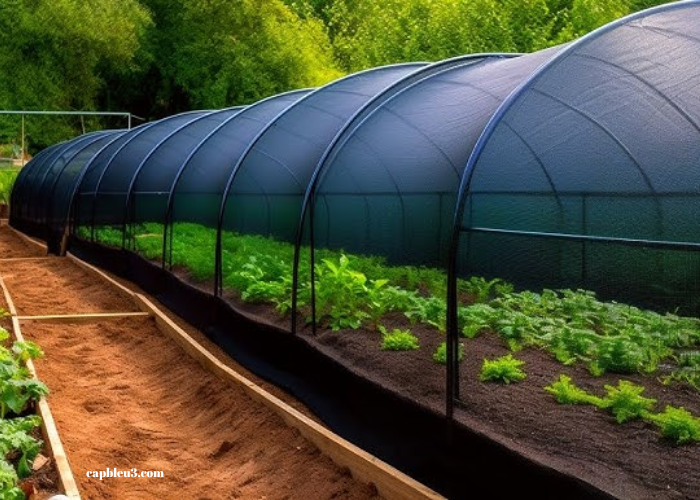
Whether you’re growing vegetables, flowers or other crops, the right Agriculture Shade Net can help ensure their success. By shielding your plants from excessive sun, wind and pests, these nets create optimal conditions for better yields. However, it’s important to keep in mind that shade nets require regular inspection and prompt repairs. Failure to do so could reduce their lifespan and increase the frequency of replacements.
Protects Plants From UV Rays
Sunlight is vital for the health of plants, but it also contains harmful ultraviolet (UV) rays. These rays can damage plant tissues and cause discoloration, stunting growth and damaging crops. Shade netting blocks UV rays, allowing plants to thrive and reach their full potential. Agricultural shade nets come in various colors, shading percentages and sizes to suit specific plants or crop types. They are also woven or knitted to provide different levels of shading and temperature control, enabling farmers to create a controlled environment for their crops.
Woven shade nets offer more strength and durability than knitted shade nets. They are also less stretchy and require more precise installation due to their rigid structure, making them suitable for permanent installations in greenhouses or fields. Another benefit of shade nets is that they help to retain soil moisture, reducing the need for frequent watering. This saves both money and time, boosting productivity and promoting sustainable and organic Agriculture Shade Net.
Protects Plants From Birds
Agricultural shade nets provide a healthy microclimate for crops, enhancing their growth and improving quality. They also protect against harsh weather and pests. However, the correct installation and maintenance of these nets is crucial to maximizing their benefits. The shade netting prevents UV rays from reaching the crops, which would otherwise damage their tissue and reduce their lifespan and yield. It also helps retain soil moisture, minimizing the need for frequent watering.
In addition, the netting acts as a barrier against birds that could be pecking at seeds and plants. As a result, using this type of netting can help farmers increase their profits and reduce the need for pesticides. In addition, the nets can improve the quality of their produce in terms of size and color. They can even protect the crops against harsh winds and cold temperatures.
Protects Plants From Rain
Shade nets protect plants from rain by reducing the impact of rainfall on crops. This helps prevent soil erosion and waterlogging, and minimizes the risk of fungal diseases that thrive in damp conditions. Aside from the aforementioned benefits, shade nets help reduce heat and water evaporation, providing a cooler and more ventilated environment for growing plants. This makes them an ideal solution for places that experience high rainfalls or frequent weather changes.
However, it’s important to note that the effectiveness of shade nets is heavily dependent on their proper installation. It is not enough to simply drape the nets over crops – they need to be securely anchored in place and checked regularly for damage. This will ensure that they continue to provide the necessary protection for the crop. Also, it’s best to choose a shade percentage that is appropriate for the specific needs of your crops. This will help them grow to their full potential while also maintaining a healthy and vibrant color.
Protects Plants From Pests
Agriculture shade nets offer a physical barrier that prevents pests such as aphids, thrips, and whiteflies from directly infiltrating crops. This reduces the need for chemical pesticides, which can lead to healthier and more environmentally friendly farming practices.
In addition, agricultural shade nets help reduce water loss by reducing evaporation. This ensures that crops get the water they need to grow and thrive. This is especially important during hot and dry weather, when crop losses can be significant. While shade nets offer a variety of benefits for farmers, their efficacy is heavily dependent on the proper installation.
It is vital that shade nets are inspected regularly and any holes or tears are repaired promptly. This will ensure that the nets function as intended, allowing them to protect plants from extreme weather conditions while also helping them reach their full potential. QiBang Shade Cloth is available in different sizes, which allows farmers to tailor their coverage based on the specific needs of their plants.
Conclusion
Agriculture Shade Net is designed to protect crops from sunlight, reducing UV damage and promoting healthy growth. These nettings also help moderate temperature fluctuations, which may affect the plant’s health. Available in different shading percentages, they are suitable for a variety of crops. Higher shade percentages suit crops that require low-light conditions, like ferns and mosses or certain vegetables.